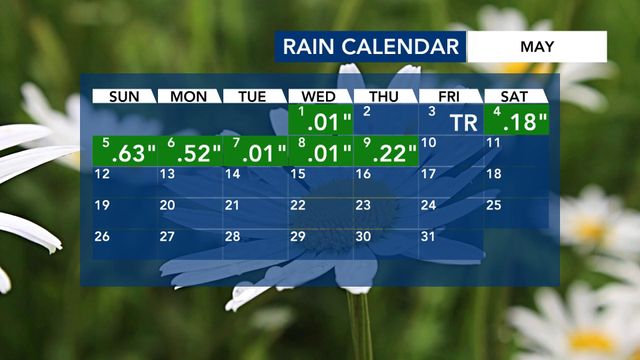Citing GOP election misinformation, NC Democrats propose sweeping voting rights bill
Democrats at the state legislature know their ideas for voting rights, elections administration and gerrymandering reform have almost no chances of passing the Republican-controlled General Assembly.
But it’s still important to put those ideas out there, they said at a press conference Wednesday — not just to let voters know they have plans they would implement if they could, but also to highlight their concerns about how some in the GOP have embraced conspiracy theories about elections, many of them pushed by former President Donald Trump.
Those conspiracy theories have had big ripple effects, said Rep. Allen Buansi, a Chapel Hill Democrat, and need to be called out.
“Attacks on our freedoms to vote have persisted for decades,” Buansi said. “But after 2020, the attacks got more dangerous and more calculated. … Members of this General Assembly have insisted on spreading lies about elections. Their goal has been to sew broad distrust in the process, and rally support for their campaigns to sabotage future elections.”
Democratic Sen. Kandie Smith of Greenville said Democrats need to make their plans for voting rights heard because Republican lawmakers have passed a number of bills intended to make it harder to vote — especially, she said, for Black people like her.
Multiple GOP-backed changes to state elections laws in the past decade have been ruled unconstitutional for racial discrimination.
And now that Republicans are closer this year to once more having a veto-proof supermajority in both chambers, Smith said, they’ve proposed more changes that could go into place before the 2024 elections. She cited new bills that, if passed, would cut down on both early voting and mail-in voting.
“The conservative members of the General Assembly are so afraid of voters’ power, they are working to pass laws that limit our chances to cast our votes and have that vote be counted,” she said.
Republicans say their proposals are intended to restore public trust in elections — and deny that their actions are as racially motivated as courts have said.
Three months ago, when the latest version of a voter identification law was again ruled unconstitutional for racial discrimination, Republicans slammed the decision. On Wednesday, House Speaker Tim Moore reiterated his distaste for the decision that ruled voter ID unconstitutional.
"They came up with this notion that it wasn't, quote, 'fair enough,'" Moore said. "Who in the world decides that? I mean, four liberal justices, apparently that's what they thought."
The Supreme Court has since switched from a Democratic majority to a Republican majority, and the new Republican majority almost immediately announced it would re-hear that voter ID case. It's expected to rule in favor of Republicans this time, but if that doesn't happen, and the law remains blocked, GOP lawmakers are likely to write a third version of the law and hope that future court cases go better for them.
“Regardless of the policymaking goals of the activist justices, the people of North Carolina overwhelmingly support voter ID laws,” Senate leader Phil Berger said in a press release after the law was struck down in December.
Democrats’ voting proposals
The elections bill was filed in both the state House and Senate, and the two versions are co-sponsored by Buansi, Smith and most every other Democrat at the legislature.
The bill would create a nonpartisan redistricting commission starting in after the 2030 cycle, in an attempt to reduce politically and racially motivated gerrymandering. Buansi said the state government has wasted tens of millions of dollars in lawsuits, due to lawmakers trying to keep unconstitutionally gerrymandered districts in place, and the system needs a total overhaul.
But that’s only one part of the wide-ranging bill. The Democrats also proposed to:
- Allow people to register to vote online — and also require state officials to do more work to verify that people are actually dead, or have moved, before removing them from the list of registered voters.
- Crack down harder on people who intimidate voters or election workers, by increasing criminal penalties and also broadening what counts as intimidation.
- Increase funding for elections offices around the state.
- Make it a crime to falsely tell people they’re not eligible to vote, or to challenge large numbers of voters’ eligibility without proof. State and national political groups sometimes engage in both those tactics.
Greg Flynn, a Democratic member of the Wake County Board of Elections, said “poll observers” — volunteers affiliated with political parties who are allowed to watch over polling places — have recently become more aggressive and that he supports the bill with its bigger penalties for intimidation.
Organized groups have even started showing up at nursing homes, he said, to try to prevent elections officials from going inside to help bedridden people vote. And the problems at polling places themselves have ramped up, too.
“Poll workers have been pushed,” Flynn said. “Observers have been aggressive. … There’s a long list of occasions where people are being intimidated, either directly or indirectly.”
Public records from the State Board of Elections shows that in 2022, local elections officials reported dozens of incidents to the state. They ranged from logistical issues and power outages to shouting matches and more.
Conservative operatives pushed to train hundreds of new poll observers for last year’s midterms. Multiple complaints revolved around aggressive interactions between them and voters.
In one report from New Hanover County, officials reported a local Republican activist for being “provocative and intimidating” toward voters at one polling place.
On the other side of the state in Henderson County, the opposite happened: A voter caused a scene by approaching poll observers and loudly telling them “they should be ashamed of themselves to be questioning the process,” a local elections official wrote in her incident report.








